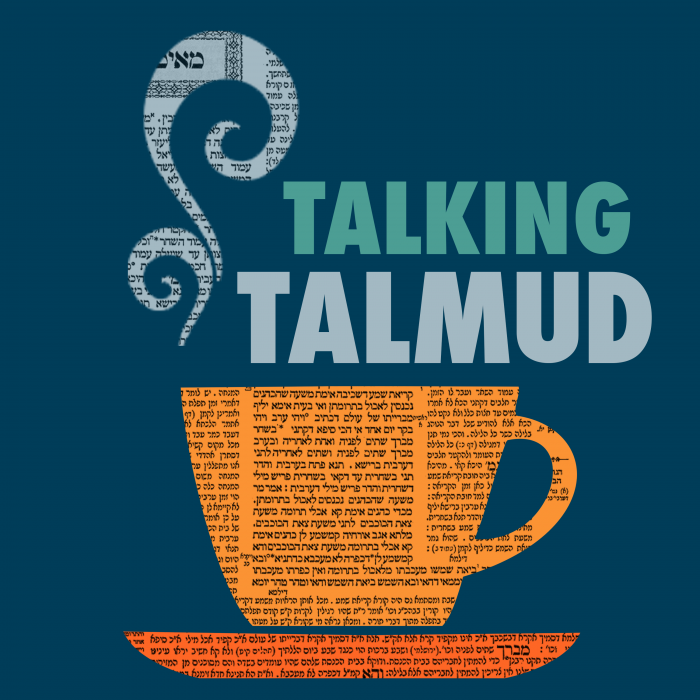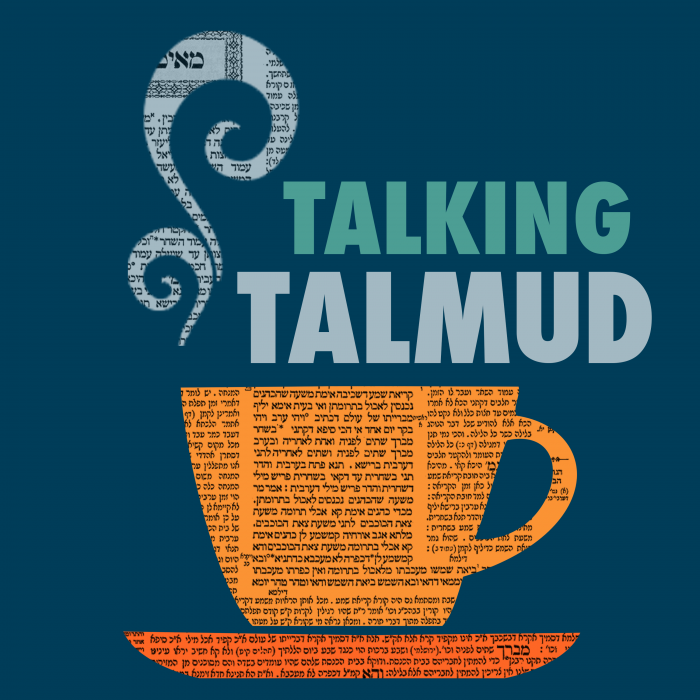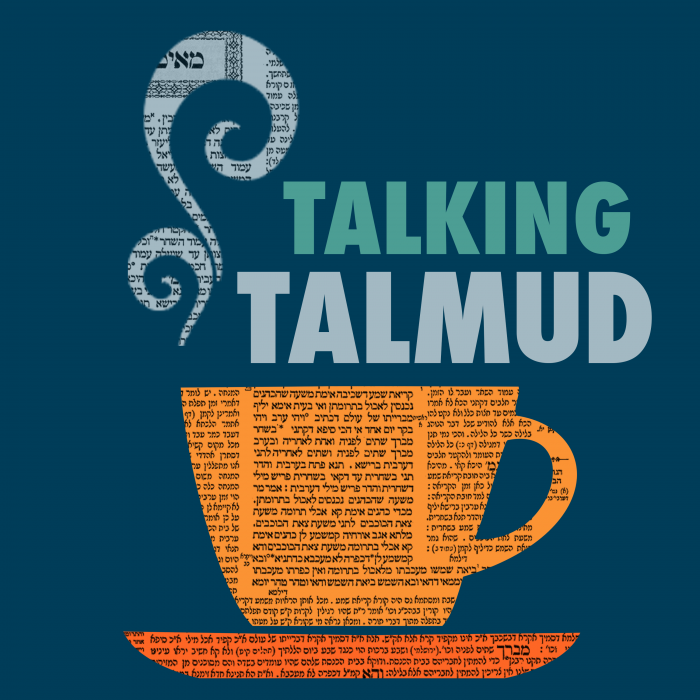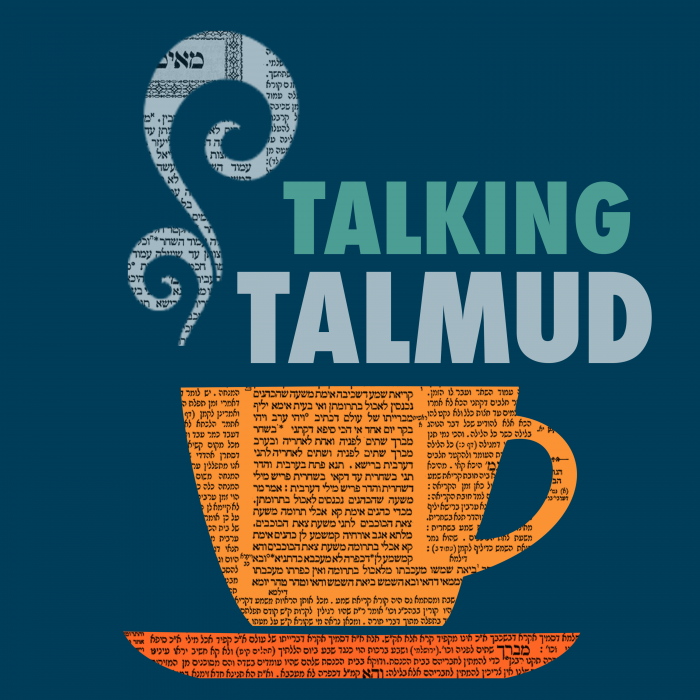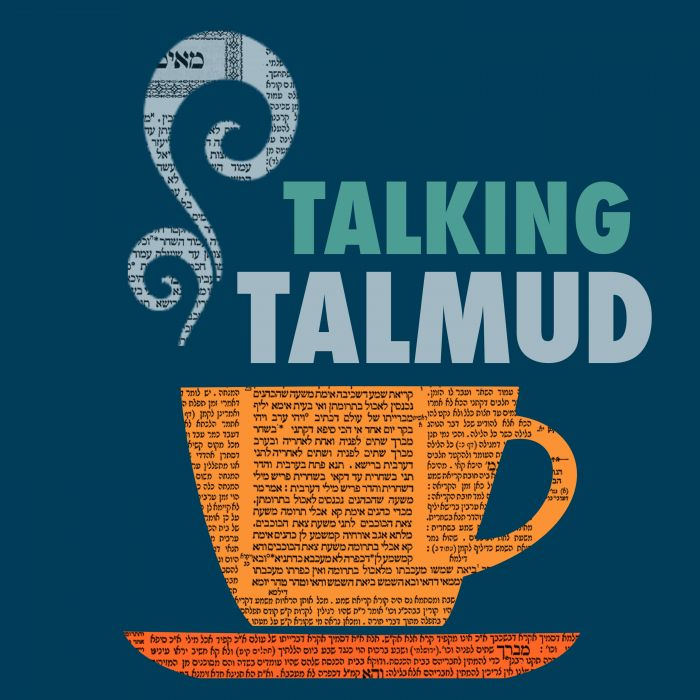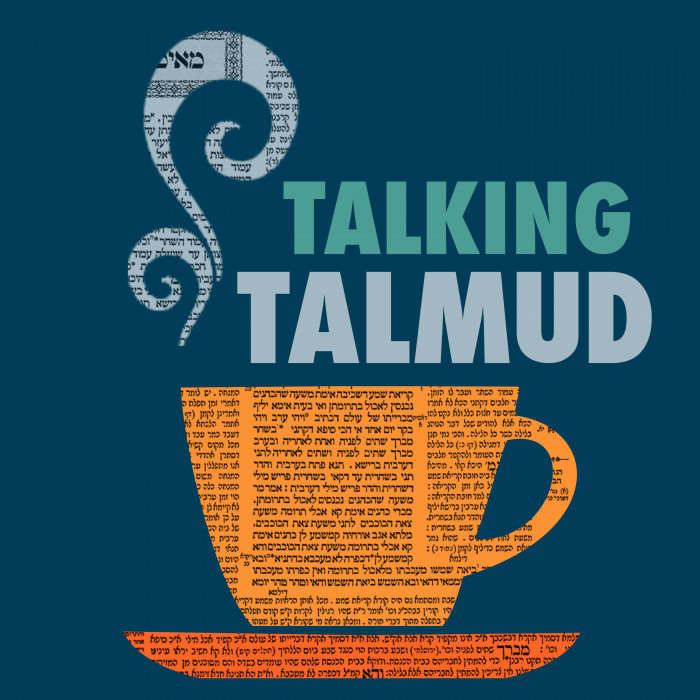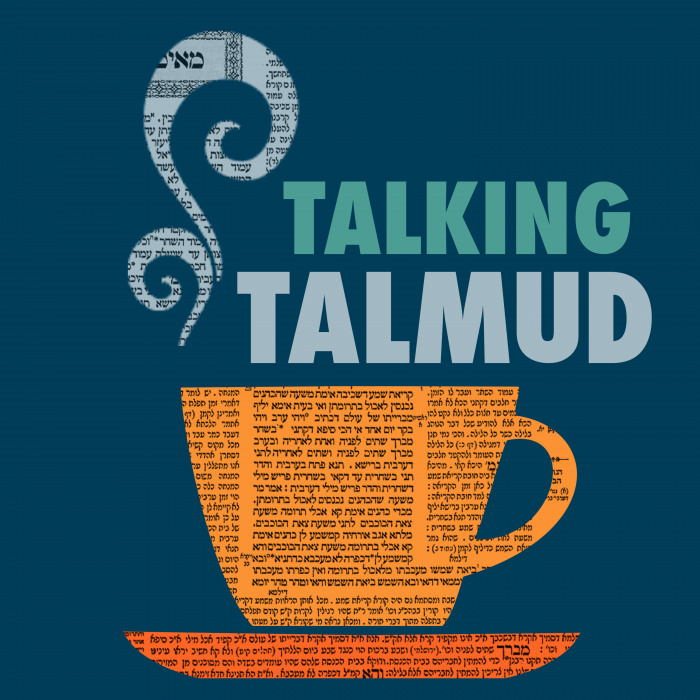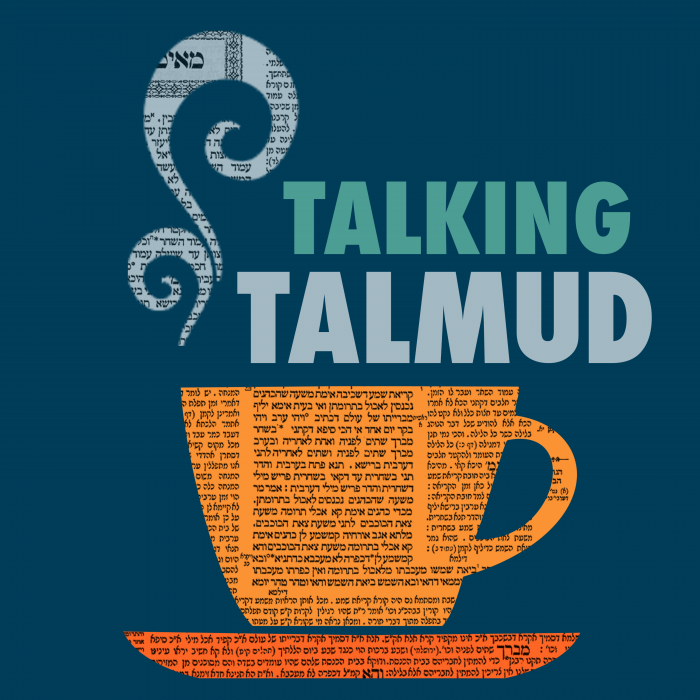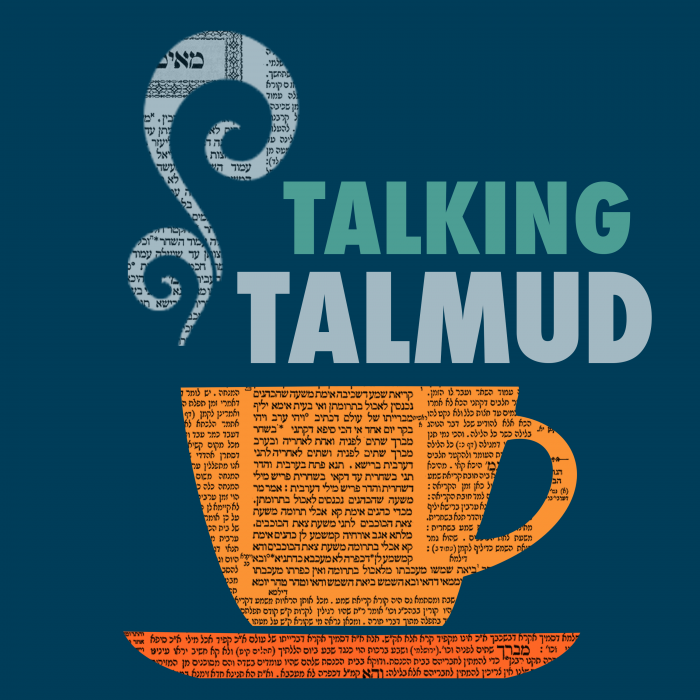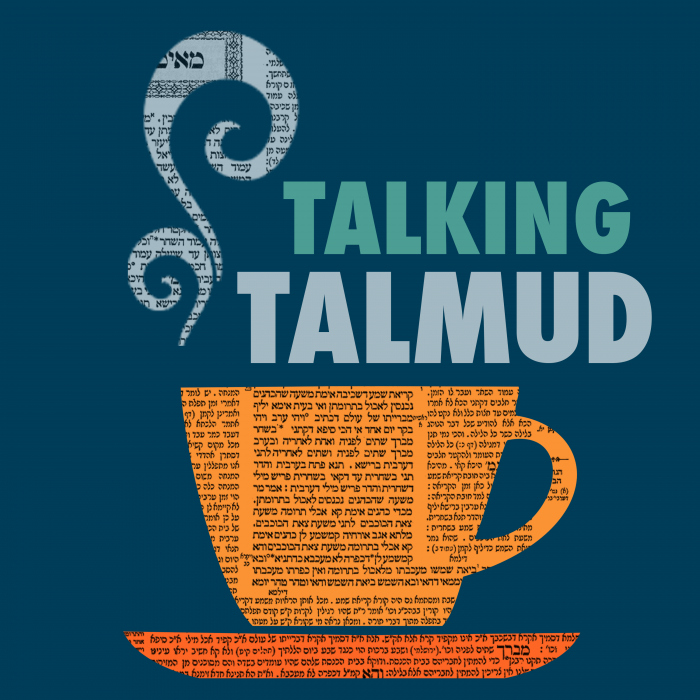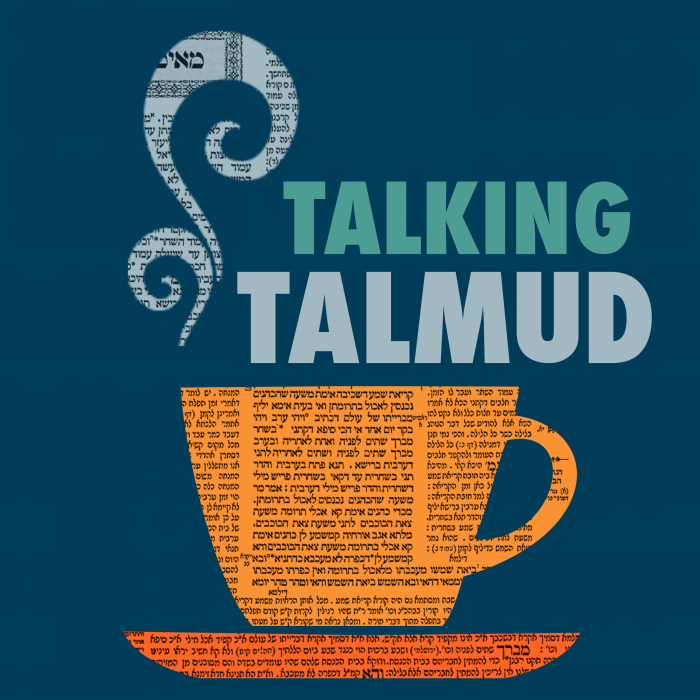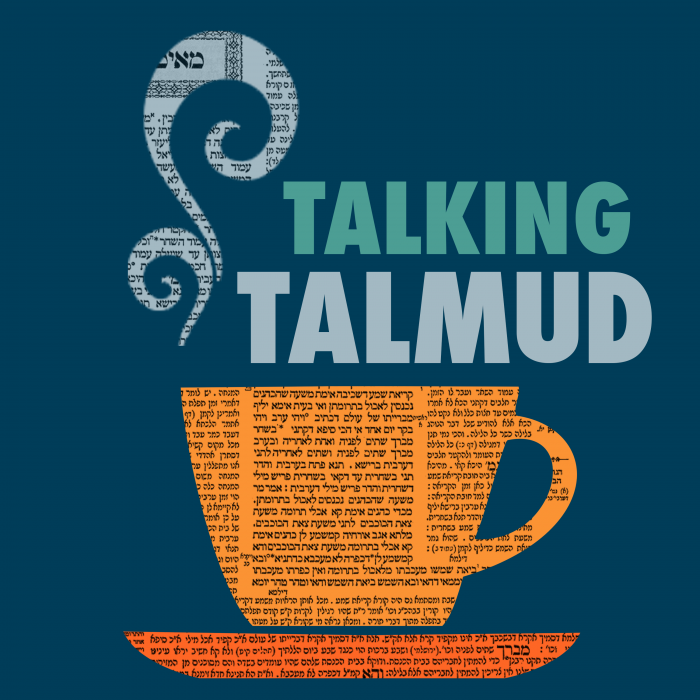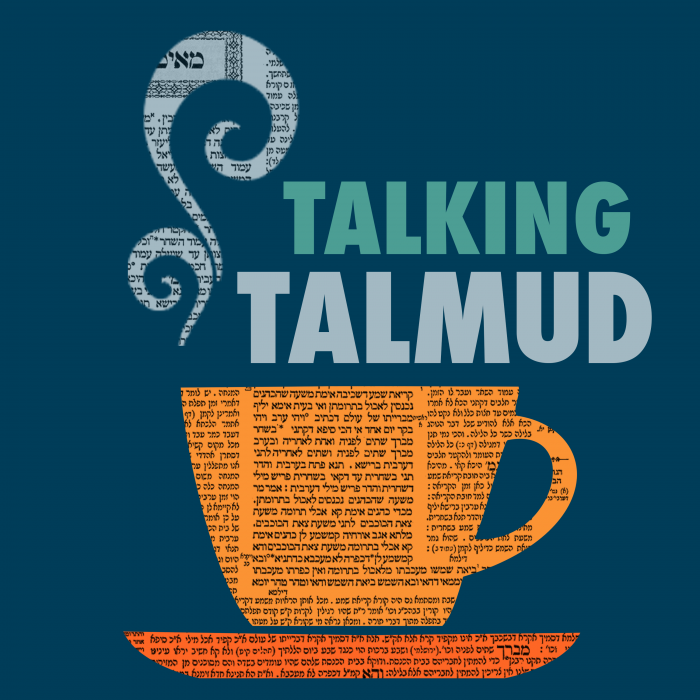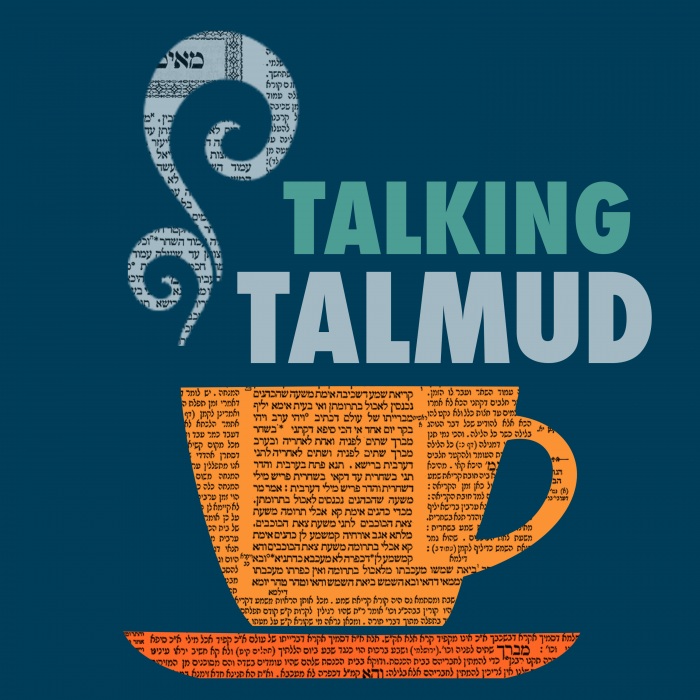Did Moshe and King David really not know when it was midnight? It seems that they did know. If so, why did Moshe say “around midnight” and what was the need to David’s harp? How was David different from other kings? How did he repsond when Mefiboshet corrected him? In what way was his son Caleb special? Why are there dots on the word “lulai” in the verse in Psalms? How can sinning affect something that is supposed to happen? Why did the Rabbis say one can say shema until midnight? One who doesn’t keep to the words of the rabbis on this issue are deserving of death. Why so severe? Does one need to mention redemption right before shmone esrei in maariv – meaning does one say shema before or after shmone esrei? What is the basis for each opinion? If one says ashrei 3 times a day, one is guaranteed entry in the World to Come. Why? Why is the letter samech missing from ashrei?
This week’s learning is sponsored for the merit and safety of Haymanut (Emuna) Kasau, who was 9 years old when she disappeared from her home in Tzfat two years ago, on the 16th of Adar, 5784 (February 25, 2024), and whose whereabouts remain unknown.
This week’s learning is dedicated of the safety of our nation, the soldiers and citizens of Israel, and for the liberation of the Iranian people. May we soon see the realization of “ליהודים היתה אורה ושמחה וששון ויקר”.
This week’s learning is sponsored for the merit and safety of Haymanut (Emuna) Kasau, who was 9 years old when she disappeared from her home in Tzfat two years ago, on the 16th of Adar, 5784 (February 25, 2024), and whose whereabouts remain unknown.
Want to dedicate learning? Get started here:


Today’s daily daf tools:
This week’s learning is sponsored for the merit and safety of Haymanut (Emuna) Kasau, who was 9 years old when she disappeared from her home in Tzfat two years ago, on the 16th of Adar, 5784 (February 25, 2024), and whose whereabouts remain unknown.
This week’s learning is dedicated of the safety of our nation, the soldiers and citizens of Israel, and for the liberation of the Iranian people. May we soon see the realization of “ליהודים היתה אורה ושמחה וששון ויקר”.
This week’s learning is sponsored for the merit and safety of Haymanut (Emuna) Kasau, who was 9 years old when she disappeared from her home in Tzfat two years ago, on the 16th of Adar, 5784 (February 25, 2024), and whose whereabouts remain unknown.
Today’s daily daf tools:
Delve Deeper
Broaden your understanding of the topics on this daf with classes and podcasts from top women Talmud scholars.
New to Talmud?
Check out our resources designed to help you navigate a page of Talmud – and study at the pace, level and style that fits you.
The Hadran Women’s Tapestry
Meet the diverse women learning Gemara at Hadran and hear their stories.
Berakhot 4
״בְּנָיָהוּ בֶּן יְהוֹיָדָע״ זֶה סַנְהֶדְרִין, ״וְאֶבְיָתָר״ אֵלּוּ אוּרִים וְתוּמִּים.
Benayahu ben Yehoyada corresponds to the Sanhedrin, since he was the head of the Sanhedrin, and Evyatar corresponds to the Urim VeTummim, as Evyatar ben Ahimelekh the priest would oversee inquiries directed to the Urim VeTummim (see I Samuel 23:9).
וְכֵן הוּא אוֹמֵר: ״וּבְנָיָהוּ בֶּן יְהוֹיָדָע עַל הַכְּרֵתִי וְעַל הַפְּלֵתִי״. וְלָמָּה נִקְרָא שְׁמָם ״כְּרֵתִי״ וּ״פְלֵתִי״? ״כְּרֵתִי״ שֶׁכּוֹרְתִים דִּבְרֵיהֶם, ״פְּלֵתִי״ שֶׁמּוּפְלָאִים בְּדִבְרֵיהֶם. וְאַחַר כָּךְ ״שַׂר צָבָא לַמֶּלֶךְ יוֹאָב״.
And so it says regarding Benayahu ben Yehoyada’s position as head of the Sanhedrin: “And Benayahu ben Yehoyada was over the Kereti and over the Peleti” (II Samuel 20:23). And why was the Sanhedrin called Kereti UPeleti? It was called Kereti because they were decisive [koretim] in their pronouncements. It was called Peleti because their pronouncements and wisdom were wondrous [mufla’im]. The head of the Kereti UPeleti was the head of the Sanhedrin. According to the order of the verse, upon being instructed by King David to go to war, the Sages first consulted with Ahitophel, then with the Sanhedrin, then they would ask the Urim VeTummim, and only thereafter was the general of the king’s army, Yoav, given the command to ready the military for battle.
אָמַר רַב יִצְחָק בַּר אַדָּא, וְאָמְרִי לַהּ אָמַר רַב יִצְחָק בְּרֵיהּ דְּרַב אִידִי: מַאי קְרָא ״עוּרָה כְבוֹדִי עוּרָה הַנֵּבֶל וְכִנּוֹר אָעִירָה שָּׁחַר״.
Rav Yitzḥak bar Adda, and some say Rav Yitzḥak, son of Rav Idi, said: From what verse is it derived that David’s lyre would wake him at midnight? “Awake, my glory; awake, harp and lyre; I will wake the dawn” (Psalms 57:9). This means that the playing lyre has already woken, and now I must engage in Torah study until dawn.
רַבִּי זֵירָא אָמַר: מֹשֶׁה לְעוֹלָם הֲוָה יָדַע, וְדָוִד נָמֵי הֲוָה יָדַע.
Rabbi Zeira offered a different solution to the question of whether Moses and David knew exactly when it was midnight and said: Moses certainly knew when it was midnight, and David also knew.
וְכֵיוָן דְּדָוִד הֲוָה יָדַע, כִּנּוֹר לְמָה לֵיהּ? לְאִתְּעוֹרֵי מִשִּׁנְתֵּיהּ.
The Gemara asks: If David knew, then why did he need the lyre? The Gemara answers: He needed the lyre to wake him from his sleep.
וְכֵיוָן דְּמֹשֶׁה הֲוָה יָדַע, לְמָה לֵיהּ לְמֵימַר ״כַּחֲצוֹת״? — מֹשֶׁה קָסָבַר: שֶׁמָּא יִטְעוּ אִצְטַגְנִינֵי פַּרְעֹה, וְיֹאמְרוּ ״מֹשֶׁה בַּדַּאי הוּא״. דְּאָמַר מָר: לַמֵּד לְשׁוֹנְךָ לוֹמַר ״אֵינִי יוֹדֵעַ״, שֶׁמָּא תִּתְבַּדֶּה וְתֵאָחֵז.
Similarly with regard to Moses, since Moses knew the precise moment of midnight, why did he say: About midnight, instead of: At midnight? Moses did so because he maintained: Lest Pharaoh’s astrologers err and believe midnight to be earlier. Since no disaster would have occurred, they would say: Moses is a liar. Moses spoke in accordance with the principle articulated by the Master: Accustom your tongue to say: I do not know, lest you become entangled in a web of deceit.
רַב אָשֵׁי אָמַר: בְּפַלְגָא אוּרְתָּא דִתְלֵיסַר נָגְהֵי אַרְבֵּסַר הֲוָה קָאֵי, וְהָכִי קָאָמַר מֹשֶׁה לְיִשְׂרָאֵל, אָמַר הַקָּדוֹשׁ בָּרוּךְ הוּא: לְמָחָר כַּחֲצוֹת הַלַּיְלָה כִּי הָאִידָּנָא אֲנִי יוֹצֵא בְּתוֹךְ מִצְרָיִם.
Rav Ashi said: This question is unfounded, as Moses was standing at midnight of the thirteenth, leading into the fourteenth, when he pronounced his prophecy, and Moses told Israel that the Holy One, Blessed be He, said that tomorrow, at the exact time like midnight tonight, I will go out into the midst of Egypt. This indicates that the passage should not be understood to mean about midnight, an approximation; but rather, like midnight, as a comparison, likening midnight tomorrow to midnight tonight.
״לְדָוִד, שָׁמְרָה נַפְשִׁי כִּי חָסִיד אָנִי״. לֵוִי וְרַבִּי יִצְחָק. חַד אָמַר: כָּךְ אָמַר דָּוִד לִפְנֵי הַקָּדוֹשׁ בָּרוּךְ הוּא: רִבּוֹנוֹ שֶׁל עוֹלָם, לֹא חָסִיד אֲנִי? שֶׁכָּל מַלְכֵי מִזְרָח וּמַעֲרָב יְשֵׁנִים עַד שָׁלֹשׁ שָׁעוֹת, וַאֲנִי ״חֲצוֹת לַיְלָה אָקוּם לְהוֹדוֹת לְךָ״.
The Gemara further explores King David’s character. It is said: “A prayer of David…Keep my soul, for I am pious” (Psalms 86:1–2). Levi and Rabbi Yitzḥak debated the meaning of this verse and how David’s piety is manifest in the fact that he went beyond his fundamental obligations. One said: David’s declaration of piety referred to his awakening during the night to pray, and so said David before the Holy One, Blessed be He: Master of the Universe, am I not pious? As all of the kings of the East and the West sleep until the third hour of the day, but although I am a king like them, “At midnight I rise to give thanks” (Psalms 119:62).
וְאִידַּךְ, כָּךְ אָמַר דָּוִד לִפְנֵי הַקָּדוֹשׁ בָּרוּךְ הוּא: רִבּוֹנוֹ שֶׁל עוֹלָם, לֹא חָסִיד אֲנִי? שֶׁכָּל מַלְכֵי מִזְרָח וּמַעֲרָב יוֹשְׁבִים אֲגוּדּוֹת אֲגוּדּוֹת בִּכְבוֹדָם, וַאֲנִי יָדַי מְלוּכְלָכוֹת בְּדָם וּבְשָׁפִיר וּבְשִׁלְיָא כְּדֵי לְטַהֵר אִשָּׁה לְבַעֲלָהּ. וְלֹא עוֹד, אֶלָּא כָּל מָה שֶׁאֲנִי עוֹשֶׂה, אֲנִי נִמְלָךְ בִּמְפִיבֹשֶׁת רַבִּי, וְאוֹמֵר לוֹ: ״מְפִיבֹשֶׁת רַבִּי, יָפֶה דַּנְתִּי? יָפֶה חִייַּבְתִּי? יָפֶה זִכִּיתִי? יָפֶה טִהַרְתִּי? יָפֶה טִמֵּאתִי?״, וְלֹא בּוֹשְׁתִּי.
And the other Sage said: David said the following before the Holy One, Blessed be He: Master of the Universe, am I not pious? For all of the kings of the East and the West sit in groups befitting their honored status, but I sit as a judge who issues rulings for the people. Women come with questions of ritual impurity and my hands become soiled with their blood as I labor to determine whether or not it is blood of impurity and she has menstruating woman status, and with a fetus that miscarried at a stage of development before it was clear whether or not it is considered a birth, and with placenta, which women sometimes discharge unrelated to the birth of a child (see Leviticus 15:19–30 with regard to blood, and 12:1–8 with regard to miscarriage and placenta). King David went to all this trouble in order to render a woman ritually pure and consequently permitted to her husband. If, after examination, a Sage declares the woman ritually pure, she is permitted to be with her husband, which leads to increased love and affection, and ultimately to procreation (Rabbi Yoshiyahu Pinto). And not only do I engage in activity considered to be beneath the station of a king, but I consult my teacher, Mefivoshet, son of King Saul’s son, Jonathan, with regard to everything that I do. I say to him: Mefivoshet, my teacher, did I decide properly? Did I convict properly? Did I acquit properly? Did I rule ritually pure properly? Did I rule ritually impure properly? And I was not embarrassed. Forgoing royal dignity should make me worthy to be called pious.
אָמַר רַבִּי יְהוֹשֻׁעַ בְּרֵיהּ דְּרַב אִידִי: מַאי קְרָא — ״וַאֲדַבְּרָה בְעֵדֹתֶיךָ נֶגֶד מְלָכִים וְלֹא אֵבוֹשׁ״.
Rav Yehoshua, son of Rav Idi, said: What verse alludes to this? “And I speak Your testimonies before kings and I will not be ashamed” (Psalms 119:46). This verse alludes both to David’s commitment to Torah, in contrast to the kings of the East and the West, as well as to the fact that he was not ashamed to discuss matters of Torah with Mefivoshet, a descendant of kings. David was not afraid to have his mistakes corrected by Mefivoshet.
תָּנָא: לֹא ״מְפִיבֹשֶׁת״ שְׁמוֹ, אֶלָּא ״אִישׁ בּשֶׁת״ שְׁמוֹ, וְלָמָּה נִקְרָא שְׁמוֹ מְפִיבֹשֶׁת? שֶׁהָיָה מְבַיֵּישׁ פְּנֵי דָּוִד בַּהֲלָכָה, לְפִיכָךְ זָכָה דָּוִד וְיָצָא מִמֶּנּוּ כִּלְאָב.
It was taught in a Tosefta from a tannaitic tradition: His name was not Mefivoshet, but rather Ish Boshet was his name. Why was Ish Boshet referred to as Mefivoshet? Because he would embarrass [mevayesh] David in matters of halakha. According to this approach, Mefivoshet is an abbreviation of boshet panim, embarrassment. Because David was not embarrassed to admit his errors, he merited that Kilav, who, according to tradition, was exceedingly wise, would descend from him.
וְאָמַר רַבִּי יוֹחָנָן: לֹא ״כִּלְאָב״ שְׁמוֹ אֶלָּא ״דָּנִיאֵל״ שְׁמוֹ, וְלָמָּה נִקְרָא שְׁמוֹ ״כִּלְאָב״ — שֶׁהָיָה מַכְלִים פְּנֵי מְפִיבֹשֶׁת בַּהֲלָכָה.
Rabbi Yoḥanan said: His name was not Kilav; rather, his name was Daniel, as it appears in a different list of David’s descendants. Why was he called Kilav? Because he would embarrass [makhlim] Mefivoshet, the teacher or authority figure [av] in matters of halakha.
וְעָלָיו אָמַר שְׁלֹמֹה בְּחָכְמָתוֹ ״בְּנִי אִם חָכַם לִבֶּךָ יִשְׂמַח לִבִּי גַם אָנִי״, וְאוֹמֵר: ״חֲכַם בְּנִי וְשַׂמַּח לִבִּי וְאָשִׁיבָה חֹרְפִי דָבָר״.
In his book of wisdom, Solomon said about this wise son: “My son, if your heart is wise, my heart will be glad, even mine” (Proverbs 23:15), as David enjoyed witnessing his son Kilav develop into a Torah luminary to the extent that Kilav was able to respond to Mefivoshet. And Solomon says about Kilav: “Be wise, my son, and make my heart glad, that I may respond to those who taunt me” (Proverbs 27:11).
וְדָוִד מִי קָרֵי לְנַפְשֵׁיהּ ״חָסִיד״? וְהָכְתִיב ״לוּלֵא הֶאֱמַנְתִּי לִרְאוֹת בְּטוּב ה׳ בְּאֶרֶץ חַיִּים״, וְתָנָא מִשְּׁמֵיהּ דְּרַבִּי יוֹסֵי: לָמָּה נָקוּד עַל ״לוּלֵא״? — אָמַר דָּוִד לִפְנֵי הַקָּדוֹשׁ בָּרוּךְ הוּא: רִבּוֹנוֹ שֶׁל עוֹלָם, מוּבְטָח אֲנִי בְּךָ שֶׁאַתָּה מְשַׁלֵּם שָׂכָר טוֹב לַצַּדִּיקִים לֶעָתִיד לָבוֹא, אֲבָל אֵינִי יוֹדֵעַ אִם יֵשׁ לִי חֵלֶק בֵּינֵיהֶם אִם לָאו?!
With regard to David’s statement, “Keep my soul, for I am pious,” the Gemara asks: Did David call himself pious? Isn’t it written: “If I had not [luleh] believed to look upon the goodness of the Lord in the land of the living” (Psalms 27:13). The dots that appear over the word luleh in the text indicate doubt and uncertainty of his piety, and whether he was deserving of a place in the land of the living (see Avot DeRabbi Natan 34). In the name of Rabbi Yosei, it was taught in a Tosefta: Why do dots appear over the word luleh, as if there are some reservations? Because David said before the Holy One, Blessed be He: Master of the Universe. I have every confidence in You that You grant an excellent reward to the righteous in the World-to-Come since God’s ultimate goodness is manifest in the land of eternal life, but I still harbor uncertainty with regard to myself, and I do not know whether or not I definitely have a portion among them. In any case, apparently David was uncertain whether or not he deserved to receive a portion of God’s reward for the righteous; how, then, could he characterize himself as pious?
שֶׁמָּא יִגְרוֹם הַחֵטְא.
The Gemara responds: His concern does not prove anything, as King David knew that he was pious. He was simply concerned lest a transgression that he might commit in the future will cause him to lose his opportunity to look upon the goodness of the Lord in the land of the living.
כִּדְרַבִּי יַעֲקֹב בַּר אִידִי, דְּרַבִּי יַעֲקֹב בַּר אִידִי רָמֵי, כְּתִיב: ״וְהִנֵּה אָנֹכִי עִמָּךְ וּשְׁמַרְתִּיךָ בְּכָל אֲשֶׁר תֵּלֵךְ״, וּכְתִיב: ״וַיִּירָא יַעֲקֹב מְאֹד״ אָמַר: שֶׁמָּא יִגְרוֹם הַחֵטְא.
The Gemara cites a proof that there is room for one to fear lest he commit a transgression in the future in accordance with the opinion of Rabbi Ya’akov bar Idi, as Rabbi Ya’akov bar Idi raised a contradiction between two verses. It is written that God told Jacob in his vision of the ladder: “Behold, I am with you and I guard you wherever you go” (Genesis 28:15), yet when Jacob returned to Canaan and realized that Esau was coming to greet him, it is written: “And Jacob became very afraid, and he was pained” (Genesis 32:8). Why did Jacob not rely on God’s promise? Jacob had concerns and said to himself: Lest a transgression that I might have committed after God made His promise to me will cause God to revoke His promise of protection.
כִּדְתַנְיָא ״עַד יַעֲבֹר עַמְּךָ ה׳, עַד יַעֲבֹר עַם זוּ קָנִיתָ״.
Apparently, at times, transgression does cause God’s promise to go unfulfilled, as it was taught explicitly in a baraita with regard to the ostensibly redundant language in a verse in the Song of the Sea: “Until Your people will cross, Lord, until the people You have acquired will cross. You bring them in and plant them in the mountain of Your inheritance, the place, Lord, which You made for Your dwelling” (Exodus 15:16–17).
״עַד יַעֲבֹר עַמְּךָ ה׳״ — זוֹ בִּיאָה רִאשׁוֹנָה, ״עַד יַעֲבֹר עַם זוּ קָנִיתָ״ — זוֹ בִּיאָה שְׁנִיָּה. מִכָּאן אָמְרוּ חֲכָמִים: רְאוּיִם הָיוּ יִשְׂרָאֵל לֵיעָשׂוֹת לָהֶם נֵס בִּימֵי עֶזְרָא כְּדֶרֶךְ שֶׁנַּעֲשָׂה לָהֶם בִּימֵי יְהוֹשֻׁעַ בִּן נוּן. אֶלָּא שֶׁגָּרַם הַחֵטְא.
The Gemara interprets homiletically that until Your people will cross refers to the first entry into Eretz Yisrael during the time of Joshua, while until the people You have acquired pass over refers to the second entry following the exile in Babylonia. Based on the juxtaposition of these two entries in this single verse, the Sages said: Israel was worthy of having a miracle performed on its behalf in the time of Ezra the scribe, just as one was performed on their behalf in the time of Joshua bin Nun. However, transgression caused the absence of a miracle.
וַחֲכָמִים אוֹמְרִים עַד חֲצוֹת: חֲכָמִים כְּמַאן סְבִירָא לְהוּ, אִי כְּרַבִּי אֱלִיעֶזֶר סְבִירָא לְהוּ — לֵימְרוּ כְּרַבִּי אֱלִיעֶזֶר.
The Gemara returns to explain what we learned in the mishna: And the Rabbis say: The time for the recitation of the evening Shema is until midnight. The Gemara asks: In accordance with whose opinion do they hold in explaining the verse: “When you lie down”? If they explain this verse in accordance with the opinion of Rabbi Eliezer, who says that “when you lie down” is the time when people customarily go to sleep, then let the Rabbis also say that the time for the recitation of Shema extends, in accordance with the opinion of Rabbi Eliezer, until the end of the first watch.
וְאִי כְּרַבָּן גַּמְלִיאֵל סְבִירָא לְהוּ — לֵימְרוּ כְּרַבָּן גַּמְלִיאֵל.
And if they explain this verse in accordance with the opinion of Rabban Gamliel who says that “when you lie down” refers to the entire night, then let the Rabbis also say that one may recite the evening Shema until dawn, in accordance with the opinion of Rabban Gamliel.
לְעוֹלָם כְּרַבָּן גַּמְלִיאֵל סְבִירָא לְהוּ, וְהָא דְּקָא אָמְרִי ״עַד חֲצוֹת״, כְּדֵי לְהַרְחִיק אֶת הָאָדָם מִן הָעֲבֵירָה. כִּדְתַנְיָא, חֲכָמִים עָשׂוּ סְיָיג לְדִבְרֵיהֶם, כְּדֵי שֶׁלֹּא יְהֵא אָדָם בָּא מִן הַשָּׂדֶה בָּעֶרֶב, וְאוֹמֵר: ״אֵלֵךְ לְבֵיתִי וְאוֹכַל קִימְעָא וְאֶשְׁתֶּה קִימְעָא, וְאִישַׁן קִימְעָא, וְאַחַר כָּךְ אֶקְרָא קְרִיאַת שְׁמַע וְאֶתְפַּלֵּל״, וְחוֹטַפְתּוֹ שֵׁינָה וְנִמְצָא יָשֵׁן כָּל הַלַּיְלָה. אֲבָל אָדָם בָּא מִן הַשָּׂדֶה בָּעֶרֶב, נִכְנָס לְבֵית הַכְּנֶסֶת, אִם רָגִיל לִקְרוֹת — קוֹרֵא. וְאִם רָגִיל לִשְׁנוֹת — שׁוֹנֶה, וְקוֹרֵא קְרִיאַת שְׁמַע וּמִתְפַּלֵּל, וְאוֹכֵל פִּתּוֹ וּמְבָרֵךְ.
The Gemara answers: Actually, the Rabbis hold in accordance with the opinion of Rabban Gamliel, and the fact that they say until midnight is in order to distance a person from transgression. As it was taught in a baraita, the Rabbis created a “fence” for their pronouncements with regard to the recitation of Shema in order to prevent a situation where a person comes home from the field in the evening, tired from his day’s work, and knowing that he is permitted to recite Shema until dawn says to himself: I will go home, eat a little, drink a little, sleep a little and then I will recite Shema and recite the evening prayer. In the meantime, he is overcome by sleep and ends up sleeping all night. However, since one is concerned lest he fall asleep and fail to wake up before midnight in order to recite Shema at the appropriate time, he will come from the field in the evening, enter the synagogue, and until it is time to pray, he will immerse himself in Torah. If he is accustomed to reading the Bible, he reads. If he is accustomed to learning mishnayot, a more advanced level of study, he learns. And then he recites Shema and prays as he should. When he arrives home, he eats his meal with a contented heart and recites a blessing.
וְכָל הָעוֹבֵר עַל דִּבְרֵי חֲכָמִים חַיָּיב מִיתָה.
The baraita concludes with a warning: Anyone who transgresses the pronouncements of the Sages is liable to receive the death penalty.
מַאי שְׁנָא בְּכָל דּוּכְתָּא דְּלָא קָתָנֵי ״חַיָּיב מִיתָה״, וּמַאי שְׁנָא הָכָא דְּקָתָנֵי ״חַיָּיב מִיתָה״?
This is a startling conclusion. What is different in all other places that it is not taught that one is liable to receive the death penalty and what is different here that it is taught that he is liable to receive the death penalty? There is no unique stringency apparent in the rabbinic restriction on the recitation of Shema.
אִיבָּעֵית אֵימָא מִשּׁוּם דְּאִיכָּא אוֹנֶס שֵׁינָה. וְאִיבָּעֵית אֵימָא: לְאַפּוֹקֵי מִמַּאן דְּאָמַר ״תְּפִלַּת עַרְבִית רְשׁוּת״, קָא מַשְׁמַע לָן דְּחוֹבָה.
The Gemara offers two answers, explaining that the conclusion of the baraita essentially stems not from the magnitude of the transgression, but rather from concern that the “fence” created around this particular mitzva may be neglected. If you wish, say that one returning from work is quite anxious to go to sleep, and due to the risk that he will be overcome by sleep, he must be particularly vigilant in the recitation of Shema. And if you wish, say instead that strong language is employed here in order to exclude the opinion of he who says that although the morning prayer and the afternoon prayer are mandatory, the evening prayer is optional. Therefore, it teaches us that the evening prayer is mandatory, and anyone who transgresses the pronouncement of the Sages in this regard is liable to receive the death penalty.
אָמַר מָר, קוֹרֵא קְרִיאַת שְׁמַע וּמִתְפַּלֵּל. מְסַיַּיע לֵיהּ לְרַבִּי יוֹחָנָן. דְּאָמַר רַבִּי יוֹחָנָן: אֵיזֶהוּ בֶּן הָעוֹלָם הַבָּא — זֶה הַסּוֹמֵךְ גְּאוּלָּה לִתְפִלָּה שֶׁל עַרְבִית. רַבִּי יְהוֹשֻׁעַ בֶּן לֵוִי אוֹמֵר: תְּפִלּוֹת בָּאֶמְצַע תִּקְּנוּם.
In this baraita, the Master said that when one returns from work in the evening, he enters the synagogue, recites Shema, and prays. From this baraita, we see that at night, just as during the day, one first recites Shema and then prays. This supports the opinion of Rabbi Yoḥanan, as Rabbi Yoḥanan said: Who is assured of a place in the World-to-Come? It is one who juxtaposes the blessing of redemption, recited after Shema, to the evening prayer. Rabbi Yehoshua ben Levi says: The prayers were instituted to be recited between the two recitations of Shema. According to Rabbi Yehoshua ben Levi, one recites the morning Shema, then recites all of the prayers and only after the recitation of the evening prayer does he recite the evening Shema.
בְּמַאי קָא מִפַּלְּגִי?
Although the practical difference between these two positions is clear, the Gemara seeks to determine: With regard to what do they disagree? What is the basis of their argument?
אִי בָּעֵית אֵימָא קְרָא, אִי בָּעֵית אֵימָא סְבָרָא.
The Gemara answers: If you wish, say that they disagree over the interpretation of a verse; if you wish, say instead that they disagree on a point of logic.
אִי בָּעֵית אֵימָא סְבָרָא.
If you say that they disagree on a point of logic, then the argument relates to the redemption recited after Shema, whose focus is the exodus from Egypt, the first redemption. The question is whether that redemption began at night, which would render it appropriate to juxtapose redemption to the blessing of the evening prayers as well, in prayer for immediate redemption. Or, perhaps, the redemption from Egypt only began during the day.
דְּרַבִּי יוֹחָנָן סָבַר גְּאוּלָּה מֵאוּרְתָּא נָמֵי הָוֵי, אֶלָּא גְּאוּלָּה מְעַלַּיְיתָא לָא הָוְיָא אֶלָּא עַד צַפְרָא. וְרַבִּי יְהוֹשֻׁעַ בֶּן לֵוִי סָבַר כֵּיוָן דְּלָא הָוְיָא אֶלָּא מִצַּפְרָא — לָא הָוְיָא גְּאוּלָּה מְעַלַּיְיתָא.
Rabbi Yoḥanan holds: Redemption occurred in the evening as well; however, the full-fledged redemption was only in the morning. Since the redemption began in the evening, it is appropriate to juxtapose the blessing of redemption to the daily evening prayer. Rabbi Yehoshua ben Levi, on the other hand, holds: Since full-fledged redemption only occurred in the morning, and the redemption of the previous evening was not a full-fledged redemption, there is no need to juxtapose the blessing of redemption to the evening prayer.
וְאִיבָּעֵית אֵימָא קְרָא, וּשְׁנֵיהֶם מִקְרָא אֶחָד דָּרְשׁוּ, דִּכְתִיב ״בְּשָׁכְבְּךָ וּבְקוּמֶךָ״.
And if you wish, say instead that the dispute between Rabbi Yoḥanan and Rabbi Yehoshua ben Levi is not a difference over a point of logic, but over the interpretation of a verse. Both derived their opinions from the same verse: “When you lie down, and when you rise.” Both interpreted that the juxtaposition in this verse of the recitation of Shema at night and the recitation of Shema in the morning draws a parallel between them.
רַבִּי יוֹחָנָן סָבַר: מַקִּישׁ שְׁכִיבָה לְקִימָה, מָה קִימָה — קְרִיאַת שְׁמַע וְאַחַר כָּךְ תְּפִלָּה, אַף שְׁכִיבָה נָמֵי — קְרִיאַת שְׁמַע וְאַחַר כָּךְ תְּפִלָּה. רַבִּי יְהוֹשֻׁעַ בֶּן לֵוִי סָבַר: מַקִּישׁ שְׁכִיבָה לְקִימָה: מָה קִימָה — קְרִיאַת שְׁמַע סָמוּךְ לְמִטָּתוֹ, אַף שְׁכִיבָה נָמֵי — קְרִיאַת שְׁמַע סָמוּךְ לְמִטָּתוֹ.
Rabbi Yoḥanan holds: The verse juxtaposes lying down and rising. Just as when one rises, the recitation of Shema is followed by prayer, as everyone agrees that in the morning one juxtaposes redemption to the morning prayer, so too, when one lies down, the recitation of Shema is followed by prayer. And Rabbi Yehoshua ben Levi maintains: The verse juxtaposes lying down and rising in a different sense. Just as when one rises, he recites Shema adjacent to rising from his bed, as the verse, when you rise, means when one awakens, so too when one lies down, he recites Shema adjacent to lying down in his bed. Therefore, the recitation of the evening Shema should be performed as close as possible to the moment when one actually lies down.
מֵתִיב מָר בְּרֵיהּ דְּרָבִינָא, בָּעֶרֶב מְבָרֵךְ שְׁתַּיִם לְפָנֶיהָ וּשְׁתַּיִם לְאַחֲרֶיהָ. וְאִי אָמְרַתְּ בָּעֵי לִסְמוֹךְ, הָא לָא קָא סָמֵךְ גְּאוּלָּה לִתְפִלָּה, דְּהָא בָּעֵי לְמֵימַר ״הַשְׁכִּיבֵנוּ״!
According to Rabbi Yoḥanan, it is a mitzva to recite Shema before the evening prayer. Mar, son of Ravina, raises an objection from a mishna: How can one do that? We learn in a later mishna: In the evening, one recites two blessings prior to the recitation of Shema and two blessings afterward. And if you say that one must juxtapose redemption to prayer, doesn’t he fail to juxtapose redemption to prayer, as he must recite: Help us lie down [hashkivenu], the blessing recited after the blessing of redemption, which constitutes an interruption between redemption and prayer?
אָמְרִי: כֵּיוָן דְּתַקִּינוּ רַבָּנַן ״הַשְׁכִּיבֵנוּ״ — כִּגְאוּלָּה אֲרִיכְתָּא דָּמְיָא. דְּאִי לָא תֵּימָא הָכִי, שַׁחֲרִית הֵיכִי מָצֵי סָמֵיךְ? וְהָא אָמַר רַבִּי יוֹחָנָן: בַּתְּחִלָּה אוֹמֵר: ״ה׳ שְׂפָתַי תִּפְתָּח״, וּלְבַסּוֹף הוּא אוֹמֵר: ״יִהְיוּ לְרָצוֹן אִמְרֵי פִי״.
They say in response: Since the Sages instituted the practice of reciting: Help us lie down, it is considered one extended blessing of redemption, and therefore does not constitute an interruption. As if you fail to say that the sections added by the Sages are considered no less significant than the original prayers, then can one juxtapose redemption to prayer even in the morning? Didn’t Rabbi Yoḥanan say: Before every prayer one recites the verse: “Lord, open my lips, that my mouth may declare Your glory” (Psalms 51:17) as a prelude to prayer? Afterward, one recites the verse: “May the words of my mouth and the meditations of my heart be acceptable before You” (Psalms 19:15). Doesn’t the verse: Lord, open my lips, constitute an interruption between redemption and prayer?
אֶלָּא הָתָם כֵּיוָן דְּתַקִּינוּ רַבָּנַן לְמֵימַר ״ה׳ שְׂפָתַי תִּפְתָּח״ — כִּתְפִלָּה אֲרִיכְתָּא דָּמְיָא. הָכָא נָמֵי, כֵּיוָן דְּתַקִּינוּ רַבָּנַן לְמֵימַר ״הַשְׁכִּיבֵנוּ״ — כִּגְאוּלָּה אֲרִיכְתָּא דָּמְיָא.
Rather, there, since the Sages instituted that one must recite: Lord, open my lips, it is considered as an extended prayer and not as an interruption. Here, too, with regard to the evening prayer, since the Sages instituted to recite the blessing Help us lie down, it is considered as one extended blessing of redemption.
אָמַר רַבִּי אֶלְעָזָר, אָמַר רַבִּי אֲבִינָא: כָּל הָאוֹמֵר ״תְּהִלָּה לְדָוִד״ בְּכָל יוֹם שָׁלֹשׁ פְּעָמִים — מוּבְטָח לוֹ שֶׁהוּא בֶּן הָעוֹלָם הַבָּא.
Tangential to Rabbi Yoḥanan’s statement that one who juxtaposes redemption and prayer is assured of a place in the World-to-Come, a similar statement is cited. Rabbi Elazar said that Rabbi Avina said: Anyone who recites: “A Psalm of David” (Psalms 145) three times every day is assured of a place in the World-to-Come.
מַאי טַעְמָא?
This statement extolling the significance of this particular chapter of Psalms, usually referred to as ashrei because its recitation is preceded by recitation of the verse, “Happy [ashrei] are those who dwell in Your House, they praise You Selah” (Psalms 84:5), raises the question: What is the reason that such significance is ascribed to this particular chapter?
אִילֵּימָא מִשּׁוּם דְּאָתְיָא בְּאָלֶף בֵּית, נֵימָא ״אַשְׁרֵי תְמִימֵי דָרֶךְ״ דְּאָתְיָא בִּתְמָנְיָא אַפִּין.
If you say that it is because it is arranged alphabetically, then let us say: “Happy are they who are upright in the way” (Psalms 119) where the alphabetical arrangement appears eight times.
אֶלָּא מִשּׁוּם דְּאִית בֵּיהּ ״פּוֹתֵחַ אֶת יָדֶךָ״, נֵימָא ״הַלֵּל הַגָּדוֹל״ דִּכְתִיב בֵּיהּ ״נֹתֵן לֶחֶם לְכָל בָּשָׂר״.
Rather, if you suggest that this particular chapter is recited because it contains praise for God’s provision of sustenance to all of creation: “You open Your hand and satisfy every living thing with favor” (Psalms 145:16), then let him recite the great hallel (Psalms 136), in which numerous praises are written, including: “Who provides food to all flesh, Whose kindness endures forever” (Psalms 136:25).
אֶלָּא מִשּׁוּם דְּאִית בֵּיהּ תַּרְתֵּי.
Rather, the reason why tehilla leDavid is accorded preference is because it contains both an alphabetic acrostic as well as mention of God’s provision of sustenance to all creation.
אָמַר רַבִּי יוֹחָנָן: מִפְּנֵי מָה לֹא נֶאֱמַר נוּן בְּ״אַשְׁרֵי״ — מִפְּנֵי שֶׁיֵּשׁ בָּהּ מַפַּלְתָּן שֶׁל שׂוֹנְאֵי יִשְׂרָאֵל, דִּכְתִיב: ״נָפְלָה לֹא תוֹסִיף קוּם בְּתוּלַת יִשְׂרָאֵל״.
Additionally, with regard to this psalm, Rabbi Yoḥanan said: Why is there no verse beginning with the letter nun in ashrei? Because it contains an allusion to the downfall of the enemies of Israel, a euphemism for Israel itself. As it is written: “The virgin of Israel has fallen and she will rise no more; abandoned in her land, none will raise her up” (Amos 5:2), which begins with the letter nun. Due to this verse, ashrei does not include a verse beginning with the letter nun.
בְּמַעְרְבָא מְתָרְצִי לַהּ הָכִי: ״נָפְלָה וְלֹא תּוֹסִיף לִנְפּוֹל עוֹד, קוּם בְּתוּלַת יִשְׂרָאֵל״. אָמַר רַב נַחְמָן בַּר יִצְחָק: אֲפִילּוּ הָכִי, חָזַר דָּוִד וּסְמָכָן בְּרוּחַ הַקֹּדֶשׁ, שֶׁנֶּאֱמַר ״סוֹמֵךְ ה׳ לְכָל הַנֹּפְלִים״.
In order to ease the harsh meaning of this verse, in the West, in Eretz Yisrael, they interpreted it with a slight adjustment: “She has fallen but she shall fall no more; rise, virgin of Israel.” Rav Naḥman bar Yitzḥak adds: Even so, David went and provided support, through divine inspiration. Although King David did not include a verse beginning with the letter nun alluding to Israel’s downfall, he foresaw the verse that would be written by Amos through divine inspiration; and the very next verse, which begins with the letter samekh, reads: “The Lord upholds the fallen and raises up those who are bowed down” (Psalms 145:14). Therefore, through divine inspiration, David offered hope and encouragement; although the virgin of Israel may have fallen, the Lord upholds the fallen.
אָמַר רַבִּי אֶלְעָזָר בַּר אֲבִינָא: גָּדוֹל מַה שֶּׁנֶּאֱמַר בְּמִיכָאֵל יוֹתֵר מִמַּה שֶּׁנֶּאֱמַר בְּגַבְרִיאֵל, דְּאִילּוּ בְּמִיכָאֵל כְּתִיב: ״וַיָּעׇף אֵלַי אֶחָד מִן הַשְּׂרָפִים״. וְאִילּוּ גַּבֵּי גַבְרִיאֵל כְּתִיב: ״וְהָאִישׁ גַּבְרִיאֵל אֲשֶׁר רָאִיתִי בֶחָזוֹן בַּתְּחִלָּה מֻעָף בִּיעָף וְגוֹ׳״.
After this discussion of the statement that Rabbi Elazar said that Rabbi Avina said, another statement of Rabbi Elazar is cited. Rabbi Elazar bar Avina said: What was said about the angel Michael is greater than what was said about the angel Gabriel. As about Michael, it is written: “And one of the seraphim flew to me” (Isaiah 6:6), indicating that with a single flight, the seraph arrived and performed his mission, while regarding Gabriel, it is written: “The man, Gabriel, whom I had seen at the beginning, in a vision, being caused to fly swiftly, approached close to me about the time of the evening offering” (Daniel 9:21). The double language used in the phrase “to fly swiftly [muaf biaf],” indicates that he did not arrive at his destination in a single flight, but rather, that it took him two flights.
מַאי מַשְׁמַע דְּהַאי ״אֶחָד״ מִיכָאֵל הוּא?
To Rabbi Elazar bar Avina, it is clear that “one of the seraphim” refers to Michael, and the Gemara asks: From where is it inferred that the one mentioned in the verse is Michael?
אָמַר רַבִּי יוֹחָנָן: אַתְיָא ״אֶחָד״ ״אֶחָד״. כְּתִיב הָכָא ״וַיָּעׇף אֵלַי אֶחָד מִן הַשְּׂרָפִים״, וּכְתִיב הָתָם: ״וְהִנֵּה מִיכָאֵל אֶחָד (מִן) הַשָּׂרִים הָרִאשׁוֹנִים בָּא לְעָזְרֵנִי״.
Rabbi Yoḥanan said: This is derived through a verbal analogy between the words one and one. Here, it is written: “And one of the seraphim flew to me” (Isaiah 6:6), and there, it is written: “And behold, Michael, one of the chief ministers of the king, came to my aid” (Daniel 10:13). Since the verse from Daniel refers to Michael as “one,” which aggadic midrash interprets as “the unique one,” so, too, “one of the seraphs” described in Isaiah must also refer to the unique one, Michael.
תָּנָא: מִיכָאֵל — בְּאַחַת, גַּבְרִיאֵל — בִּשְׁתַּיִם, אֵלִיָּהוּ — בְּאַרְבַּע, וּמַלְאַךְ הַמָּוֶת — בִּשְׁמֹנֶה. וּבִשְׁעַת הַמַּגֵּפָה, בְּאֶחָת.
This discussion in the Gemara concludes with a Tosefta that arrives at a hierarchy of angels based on the number of flights required by each to arrive at his destination. It was taught in a Tosefta: Michael, as stated above, in one flight; Gabriel, in two flights; Elijah the Prophet, in four flights; and the Angel of Death, in eight flights. During a time of plague, however, when the Angel of Death seems ubiquitous, he arrives everywhere in one flight.
אָמַר רַבִּי יְהוֹשֻׁעַ בֶּן לֵוִי: אַף עַל פִּי שֶׁקָּרָא אָדָם קְרִיאַת שְׁמַע בְּבֵית הַכְּנֶסֶת — מִצְוָה לִקְרוֹתוֹ עַל מִטָּתוֹ. אָמַר רַבִּי יוֹסֵי: מַאי קְרָא — ״רִגְזוּ וְאַל תֶּחֱטָאוּ אִמְרוּ בִלְבַבְכֶם עַל מִשְׁכַּבְכֶם וְדֹמּוּ סֶלָה״.
Rabbi Yehoshua ben Levi said: Even though one recited Shema in the synagogue, it is a mitzva to recite it upon his bed in fulfillment of the verse: “When you lie down.” Rabbi Yosei said: What verse alludes to the fact that one must recite Shema in the evening, upon his bed, as well? “Tremble, and do not sin; say to your heart upon your bed and be still, Selah” (Psalms 4:5). This is understood to mean: Recite Shema, about which it is written, “on your hearts,” upon your bed, and afterward be still and sleep.
אָמַר רַב נַחְמָן:
With regard to Rabbi Yehoshua ben Levi’s statement, Rabbi Naḥman said:



